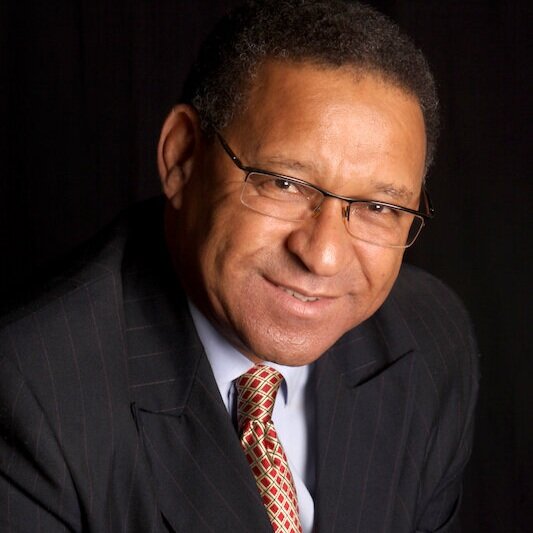Dreaming a Different World: COVID-19 and Beyond
10-1-2021
While many talk about “getting back to normal,” Drs. Anna Case-Winters and Allan Boesak are imagining a radically different future. At this year's McCormick Day, they'll share what's being proposed to disrupt unjust social, political and economic arrangements around the globe.
“‘Normal’ wasn’t working for the vast majority of the world’s population,” begins Rev. Dr. Anna Case-Winters, Professor of Theology, as she looks at what life was like for people around the world even before the global pandemic struck. “What was laid bare by COVID-19 was the deadly dynamic of systemic racism and economic injustice. We saw clearly that some people were more vulnerable to the virus due to social, economic, political, and environmental realities. And those inequities don’t call for a return to the past, but the creation of a new and expansive vision for an altogether different future.”
For nearly a year, Dr. Case-Winters and Rev. Dr. Allan Boesak, Professor of Black Liberation Theology and Ethics at the University of Pretoria in South Africa, have been part of global conversations led by the World Communion of Reformed Churches. They are asking the question: what does God require of us in these unprecedented times? Their conversations are feeding into an even larger conversation of global religious leaders, including the Lutheran World Federation, the Council for World Mission, and the World Council of Churches.
At this year’s McCormick Day, Drs. Case-Winters and Boesak will share from those conversations some of the new paths forward that are being proposed to disrupt unjust social, political, and economic arrangements that are currently being passed off as normal and inevitable.
“There is another way to shape our life together that sees all people – not just our own family and kin – as our relations,” says Dr. Case-Winters. “Such a vision holds out hope that racism can be dismantled, patriarchal constraints can yield genuine equality, and xenophobia can be replaced by radical hospitality. A commitment to care for the earth and for one another can guide us to a new reality. We can begin to build bridges, not walls.”
Dismantling global apartheid
A prophetic challenge to the pervasive racial, social, and economic inequities has been powerfully expressed by Dr. Boesak who has come to identify the present realities as ‘global apartheid.’ “Through the struggles of oppressed black South Africans, apartheid has become a globally recognized, and rightly reviled concept and reality,” he says. “It designates a system designed to control, deprive, oppress, exploit, marginalize, and exclude – all built on a false sense of superiority and inferiority, and an assumed right to rule. It is a murderous system, a crime against humanity. Reading the signs of the times in our world today, what we see is apartheid – only on a global scale.”
Global apartheid is so pervasive and so powerful that the church – if it is to be faithful – must oppose it, emphasizes Dr. Case-Winters. “This is where the McCormick Day theme, Radical Imagination, points to something essential,” she says. “It is time to exercise our ‘ecclesial imagination’ so that we may become a church in and for the world. This past year, we have had to reimagine church. Shut out of the buildings and untethered from our properties, we are at last freed to remember that the church is not a building; the church is a movement. The church is being reformed in these moments by the Spirit’s leading. We are becoming active agents, agitating for a different kind of world.”
This is not something that the church can do alone, recognizes Dr. Case-Winters. So, she adds, “we will join hands with people of good will, people of all faiths and no faith; we will join hands with the emancipatory movements of our time. As the saying goes, ‘To change everything, we will need everyone everywhere.’ We will work with all the partners God sends.”
Those dreaming of a different world may not live to see the turnaround, yet the work is still worth it, Dr. Boesak declares. “We are inspired by the faithfulness of God who is with us in our struggles, and we continue to dream of that day as if it were already coming,” he says. “This is a dream that does not roll on the wheels of inevitability; we must dream it actively, after the example of Martin Luther King, Jr., believing it shall dawn, because we are responding to God’s call for justice.”
Rev. Dr. Allan Boesak
Rev. Dr. Anna Case-Winters



